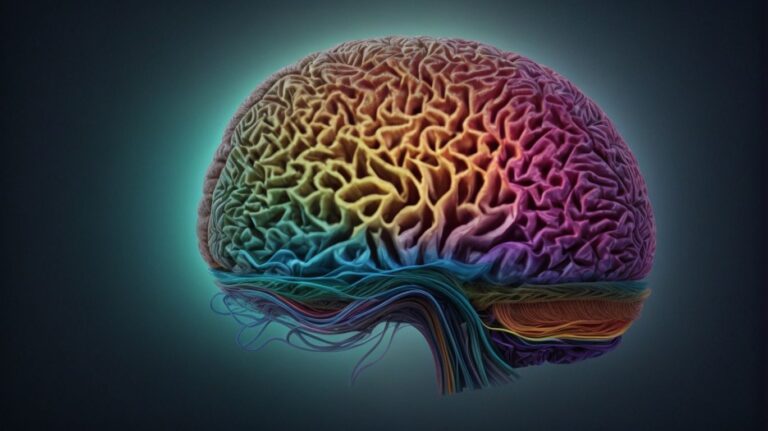Child psychology, the study of the development and behavior of children, has a rich history filled with influential figures who have shaped the field. In this article, we will delve into the origins of child psychology, starting with the first person to study the subject.
We will also explore some early theories in child psychology, such as the nature vs. nurture debate and psychoanalytic theory. We will highlight the contributions of pioneers like Jean Piaget, Lev Vygotsky, John B. Watson, B.F. Skinner, and Sigmund Freud to the field. Join us on this journey as we uncover the fascinating world of child psychology and the individuals who have paved the way for its advancement.
Contents
- 1 Who is Considered the First Person to Study Child Psychology?
- 2 What are Some Early Theories in Child Psychology?
- 3 Who are Some Pioneers in Child Psychology?
- 4 What Contributions Did These Pioneers Make to the Field of Child Psychology?
- 5 Frequently Asked Questions
- 5.1 Who is considered the first person to study child psychology?
- 5.2 What led Wilhelm Preyer to study child psychology?
- 5.3 What were some of the key findings in Wilhelm Preyer’s book “The Mind of the Child”?
- 5.4 Did Wilhelm Preyer’s work have a significant impact on the field of child psychology?
- 5.5 Who were some other early pioneers of child psychology?
- 5.6 What contributions did G. Stanley Hall make to the field of child psychology?
Who is Considered the First Person to Study Child Psychology?
The exploration of child psychology as a distinct field of study traces back to the pioneering work of psychologists such as Jean Piaget, who is widely regarded as one of the first individuals to delve into the complexities of children’s mental development and cognitive processes.
It was during the late 19th and early 20th centuries that the importance of understanding children’s minds and behaviors gained traction within the realm of psychology. At a time when child rearing practices and educational methods varied widely, there was a growing interest in unraveling the underlying mechanisms driving children’s cognitive growth. Jean Piaget’s groundbreaking research not only shed light on the stages of cognitive development in children but also influenced how educators and parents approached teaching and nurturing young minds.
His concept of schema, which refers to mental structures that individuals use to organize and interpret information, revolutionized our understanding of how children perceive and interact with the world around them. Through careful observation and experimentation, Piaget demonstrated that children progress through distinct stages of cognitive development, from simple sensory motor responses to more complex abstract thinking.
What Led to the Emergence of Child Psychology as a Field of Study?
The evolution of child psychology as a formal area of inquiry stemmed from the recognition of the unique cognitive and emotional development exhibited by children across different stages of growth and maturation, prompting researchers to delve deeper into the mechanisms underlying children’s mental development.
One of the foundational principles that shaped child psychology is genetic epistemology, a theory proposed by Jean Piaget. This theory emphasizes how children actively construct their understanding of the world through interactions with their environment. Piaget’s stages of cognitive development, including sensorimotor, preoperational, concrete operational, and formal operational stages, provide a framework for understanding how children’s thinking processes evolve.
Child psychology explores the intricate interplay between nature and nurture in shaping a child’s mental and emotional growth. The field recognizes that genetic predispositions and environmental influences both play pivotal roles in children’s development, highlighting the importance of fostering a supportive and enriching environment for optimal growth.
What are Some Early Theories in Child Psychology?
Early theories in child psychology revolved around understanding how cognitive processes are shaped by social interactions and the environment, with proponents of constructivist theories emphasizing the active role children play in their cognitive development.
One of the key proponents of this perspective was Jean Piaget, whose theory of cognitive development highlighted stages through which children progress in their understanding of the world by actively constructing their knowledge through hands-on experiences. According to Piaget, children are like little scientists, constantly exploring and experimenting to make sense of their surroundings.
Lev Vygotsky introduced the sociocultural theory that underscores the importance of social interactions and cultural influences in cognitive development. He believed that children’s learning is scaffolded by more knowledgeable individuals in their social environment, such as parents, teachers, and peers.
Nature vs. Nurture Debate
The age-old debate of nature versus nurture in child development has been a central theme in child psychology, with Jean Piaget’s theory emphasizing the critical role of cognitive growth and the acquisition of cognitive skills during early childhood.
This notion posits that children’s interactions with their environment play a pivotal role in shaping their cognitive abilities, as they go through various stages of development outlined by Piaget. According to Piaget, children actively construct their understanding of the world through exploration and interaction, moving from simplistic views to more complex thinking patterns.
These cognitive milestones are not solely predetermined by genetics but are heavily influenced by the experiences and stimuli that children encounter from infancy. The nurture aspect in Piaget’s theory highlights the significance of external factors such as social interactions, educational experiences, and environmental stimuli in fostering cognitive development.
Psychoanalytic Theory
Psychoanalytic theories proposed by psychologists like Anna Freud and Melanie Klein shed light on the intricacies of children’s mental development, highlighting the significance of stage theories in understanding early psychological growth.
Anna Freud, in her work, emphasized the influence of a child’s environment on their development, suggesting that early experiences shape their future mental health outcomes. Conversely, Melanie Klein focused on internal dynamics, proposing that children’s fantasies and unconscious conflicts play a crucial role in their psychological progression.
These psychoanalytic perspectives underscore the essential role of stages in delineating children’s evolving mental frameworks, from the oral and anal stages to the latency period and beyond.
Behaviorism
Behaviorism, championed by psychologists like G. Stanley Hall and influenced by the evolutionary insights of Charles Darwin, focused on how cognitive development is shaped by learning environments and external stimuli.
By observing how children respond to different stimuli and environmental cues, behaviorists believe that they can understand how learning shapes their cognitive processes.
According to this perspective, children’s behaviors are learned responses to their surroundings and experiences,
- highlighting the importance of stimuli in shaping their actions and thoughts.
- By studying how children react to rewards and punishments in their environments, behaviorists seek to uncover the mechanisms underlying their cognitive development.
Who are Some Pioneers in Child Psychology?
Notable pioneers in child psychology such as Lev Vygotsky and John Locke made significant contributions to understanding the cognitive and learning processes of children, shedding light on the intricate interplay between intelligence development and educational practices.
Lev Vygotsky, known for his sociocultural theory, emphasized the role of social interactions in cognitive development, highlighting the importance of the cultural context in shaping a child’s learning environment.
John Locke, a key figure in the history of developmental psychology, put forth the idea that children’s minds are blank slates (tabula rasa), emphasizing the impact of experiences and education on their intellectual growth.
Jean Piaget
Jean Piaget, a trailblazer in the field of child psychology, revolutionized our understanding of cognitive development through his groundbreaking stage theory and genetic epistemology, laying the foundation for modern theories of children’s mental growth.
One of the key aspects of Piaget’s stage-based framework is its division into four major stages: the sensorimotor, preoperational, concrete operational, and formal operational stages. These stages represent distinct periods in a child’s cognitive development, each characterized by specific cognitive abilities and ways of understanding the world.
Piaget’s genetic epistemology, on the other hand, focuses on how children actively construct knowledge through their interactions with the environment. This emphasis on children as active learners challenged traditional views that portrayed them as passive recipients of information.
Lev Vygotsky
Lev Vygotsky‘s sociocultural theory highlighted the role of cognitive processes in children’s development, emphasizing the dynamic interplay between social interactions and mental growth, a perspective that diverged from traditional cognitive theories.
He believed that children’s learning and development are not solely based on innate abilities, but rather influenced by interactions with the environment and other individuals.
Vygotsky was greatly influenced by the work of thinkers like James Mark Baldwin, who also emphasized the importance of social interactions in shaping children’s cognitive processes.
According to Vygotsky, language plays a crucial role in the development of cognitive functions, as it serves as a tool for communication and thought processes.
John B. Watson
John B. Watson’s behaviorist approach to child psychology, influenced by figures like Alfred Binet, underscored the importance of learning environments in molding cognitive development and laid the groundwork for behaviorism in developmental studies.
Watson’s work revolutionized the field by shifting the focus from internal thoughts and emotions to observable behaviors, believing that these were the key to understanding human development. His famous ‘Little Albert’ experiment showcased the principles of classical conditioning and its influence on shaping behavior. Drawing from Binet’s intelligence testing methods, Watson highlighted the significance of external influences on a child’s cognitive growth, emphasizing that these environmental factors were pivotal in shaping personality traits and behaviors.
B.F. Skinner
B.F. Skinner’s emphasis on operant conditioning and cognitive growth, influenced by the work of Arnold Gesell, provided valuable insights into children’s cognitive development and aligned with the principles of constructivist theories.
Skinner’s innovative approach to child psychology revolutionized the field by highlighting the significance of reinforcement and punishment in shaping behavior. His experiments with animals, such as the famous Skinner box, demonstrated the power of environmental factors in influencing learning. The integration of Gesell’s research on maturation and development further enriched Skinner’s perspective, emphasizing the interplay between innate abilities and environmental stimuli in child growth.
Skinner’s beliefs were remarkably compatible with constructivist theories, which emphasize children as active learners constructing their understanding of the world. By acknowledging the role of the environment in fostering cognitive development, Skinner’s theories resonated with the notion that children actively engage with their surroundings to build knowledge.
Sigmund Freud
Sigmund Freud’s psychoanalytic theory, enriched by the insights of Chris Athey and Barbara Rogoff, delved into the complexities of children’s cognitive development, emphasizing the role of social interactions and early experiences in shaping mental growth.
Freud’s groundbreaking work focused on the different stages of childhood development, highlighting significant aspects such as the id, ego, and superego. Athey and Rogoff, on the other hand, expanded on Freud’s theories by exploring how children’s interactions within their social environments contribute to their cognitive abilities.
This approach revolutionized the understanding of how children learn and develop, shedding light on the importance of peer relationships, cultural contexts, and familial influences on cognitive growth. Athey’s schemas and Rogoff’s sociocultural theory provided a more comprehensive framework for comprehending the intricate interplay between nature and nurture in the intellectual progression of a child.
What Contributions Did These Pioneers Make to the Field of Child Psychology?
The pioneering figures in child psychology, including Jean Piaget, Lev Vygotsky, John B. Watson, B.F. Skinner, and Sigmund Freud, made lasting contributions to the field by advancing our understanding of genetic epistemology, learning mechanisms, intelligence development, and educational practices.
Each of these scholars introduced unique perspectives that continue to shape modern educational psychology. Jean Piaget’s stages of cognitive development, for example, revolutionized how we perceive children’s intellectual growth.
Lev Vygotsky’s sociocultural theory emphasized the role of social interactions in learning, highlighting the critical connection between language, culture, and cognitive development.
John B. Watson and B.F. Skinner’s behaviorism theories shed light on the impact of environmental factors on behavior, laying the groundwork for behavior modification strategies in education. Their work challenged traditional beliefs and paved the way for new approaches to teaching and learning.
Sigmund Freud, with his psychoanalytic theories, brought attention to the importance of early childhood experiences in shaping personality and cognitive functioning. His concepts of the unconscious mind and defense mechanisms continue to influence how we understand children’s emotional development.
Jean Piaget’s Theory of Cognitive Development
Jean Piaget’s theory of cognitive development elucidated the intricate processes by which children progress through distinct stages of cognitive growth, providing a comprehensive framework for understanding how cognitive processes evolve from early childhood through various developmental milestones.
One of the key concepts in Piaget’s theory is the notion of schema, which are mental structures that individuals use to interpret and organize the world around them.
As children encounter new experiences, they assimilate these into existing schemas or accommodate by altering their existing schemas to incorporate the new information. This process of assimilation and accommodation is essential in Piaget’s theory as it drives cognitive development and allows individuals to adapt to their environment.
Lev Vygotsky’s Sociocultural Theory
Lev Vygotsky’s sociocultural theory underscored the impact of genetic epistemology and learning environments on children’s cognitive development, aligning with constructivist theories that emphasize the role of social interactions in fostering cognitive growth.
Vygotsky posited that individuals’ cognitive development is significantly influenced by their social interactions and cultural context. According to his theory of genetic epistemology, children not only inherit genetic traits but also inherit knowledge from their cultural surroundings. This highlights the importance of supportive and stimulating learning environments in facilitating children’s cognitive growth. Vygotsky’s concepts, such as the zone of proximal development and scaffolding, further elucidate how social interactions contribute to children’s cognitive advancement. These ideas have resonated strongly with constructivist theorists, who emphasize the active role children play in constructing their knowledge through social collaboration and guidance.
John B. Watson’s Behaviorism
John B. Watson’s behaviorism in child psychology emphasized the importance of stage theories, cognitive skills development, and the interplay between cognitive growth and social interactions, laying the groundwork for behaviorist perspectives in understanding children’s cognitive development.
Watson’s belief in behaviorism centered around the idea that observable behaviors are the key to understanding psychological processes in children. He emphasized how children acquire cognitive skills through their interactions with the environment, parents, and peers. This emphasis on social interactions influencing cognitive growth paved the way for later researchers to delve into the intricacies of how children learn, develop, and respond to their surroundings. By focusing on the environment and learning experiences, Watson paved the way for a new era of child psychology that continues to shape our understanding of cognitive development today.
B.F. Skinner’s Operant Conditioning
B.F. Skinner’s emphasis on operant conditioning and its effects on children’s mental development, within the context of stage theories and constructive principles, provided valuable insights into the behavioral aspects of cognitive growth in children.
Operant conditioning, as studied by Skinner, involves the concept that behaviors are shapes by consequences. By exploring this premise, Skinner highlighted how children’s behaviors can be reinforced or weakened through positive and negative reinforcement. This process plays a crucial role in the cognitive development of children, aligning with key developmental stages identified by theorists. Through this lens, Skinner’s work not only deepened our understanding of behavioral psychology but also offered a unique perspective on how children learn and grow.
Sigmund Freud’s Psychoanalytic Theory
Sigmund Freud’s psychoanalytic theory delved into the intricacies of cognitive processes, cognitive growth, and the influence of learning environments on children’s intelligence development, offering a psychoanalytic perspective on the complexities of children’s mental growth.
In Freud’s perspective, cognitive processes stemmed from the interplay between conscious and unconscious mental mechanisms within a child’s mind. According to Freud, a child’s cognitive growth trajectories were significantly influenced by early childhood experiences and the resolution of developmental conflicts.
Freud highlighted the role of learning environments, emphasizing that the quality of interactions with caregivers and exposure to various stimuli played a crucial role in shaping a child’s intelligence development. Through Freud’s psychoanalytic framework, the progression of cognitive abilities in children was viewed as intertwined with emotional experiences and unconscious motivations.
Frequently Asked Questions
Who is considered the first person to study child psychology?
The first person to study child psychology is typically credited to be Wilhelm Preyer, a German scientist who published the book “The Mind of the Child” in 1882.
What led Wilhelm Preyer to study child psychology?
Preyer’s interest in child psychology stemmed from his personal experiences as a father and his observations of his own children’s development.
What were some of the key findings in Wilhelm Preyer’s book “The Mind of the Child”?
Preyer’s book discussed topics such as the development of language, the role of imitation in learning, and the influence of heredity and environment on a child’s development.
Did Wilhelm Preyer’s work have a significant impact on the field of child psychology?
Yes, Preyer’s work was highly influential and helped to establish child psychology as a distinct field of study.
Who were some other early pioneers of child psychology?
Other notable pioneers in the field of child psychology include G. Stanley Hall, Jean Piaget, and Lev Vygotsky.
What contributions did G. Stanley Hall make to the field of child psychology?
G. Stanley Hall is often referred to as the “father of child psychology” for his groundbreaking work on child development and establishing the first child psychology laboratory in the United States. He also founded the American Psychological Association and the first child study center in the US.



